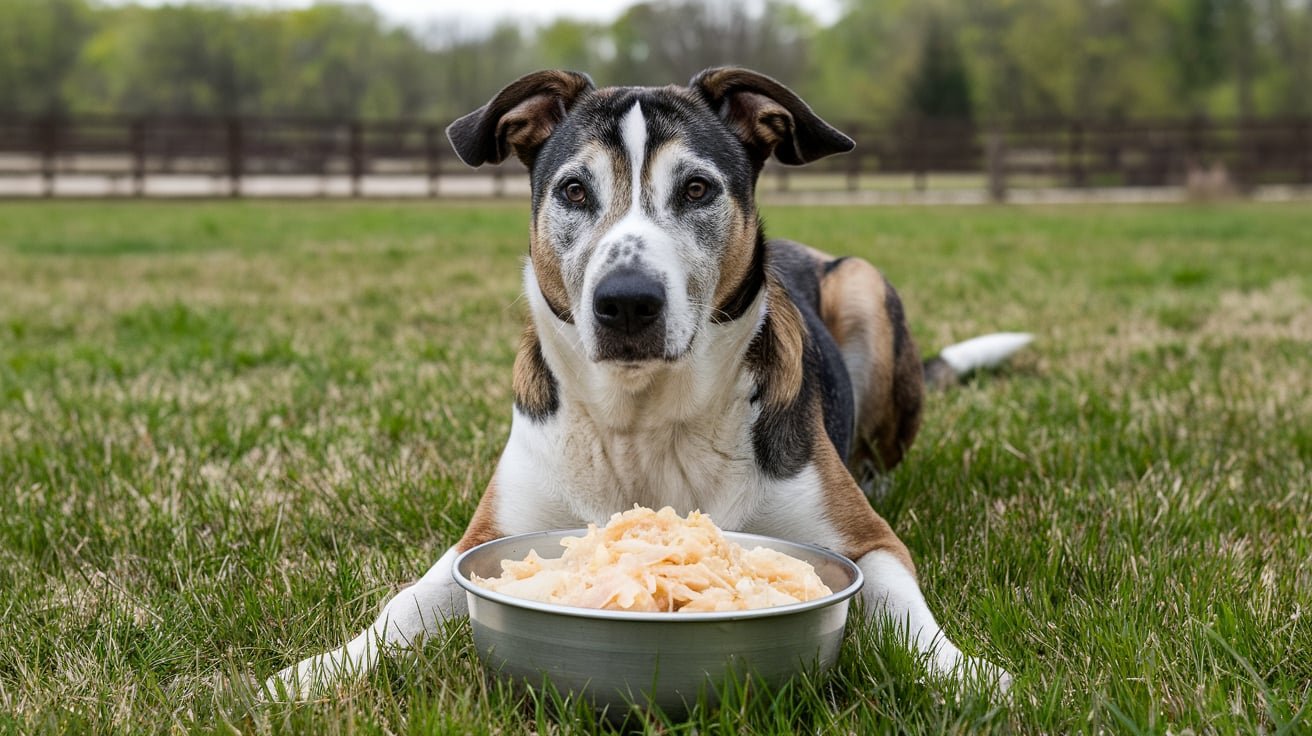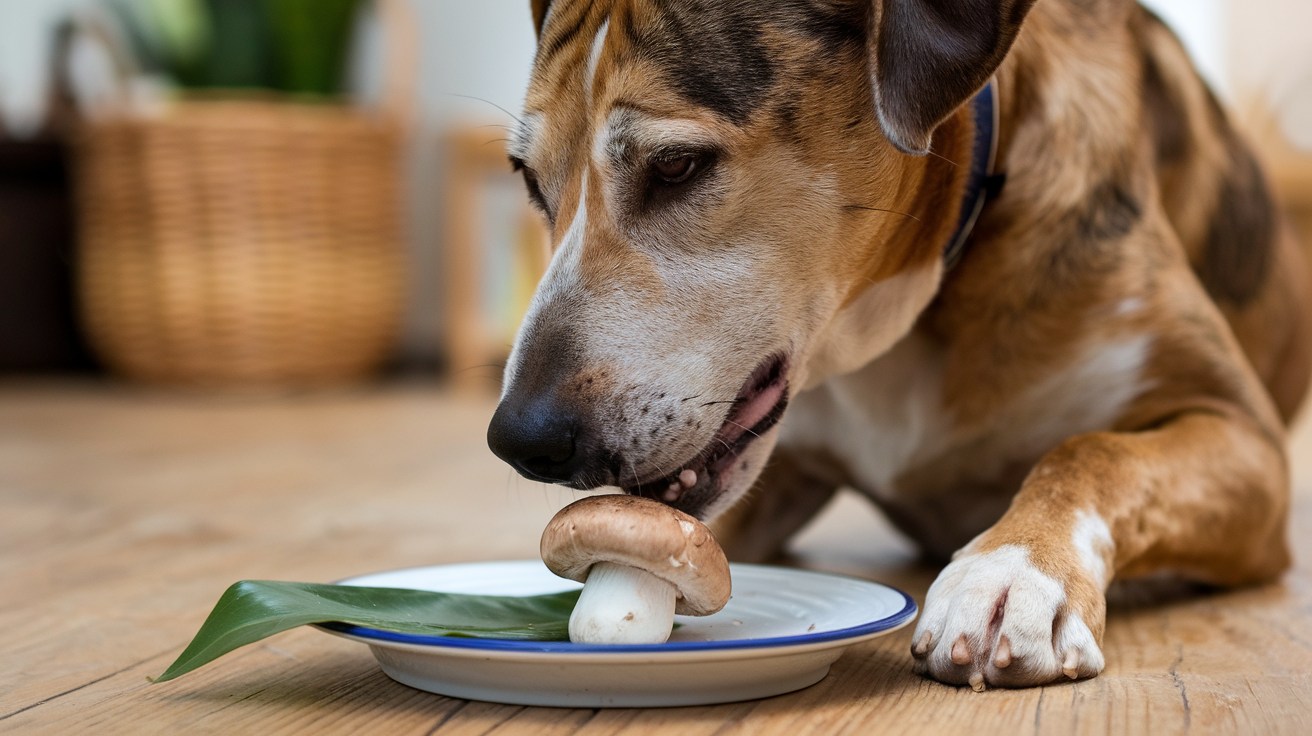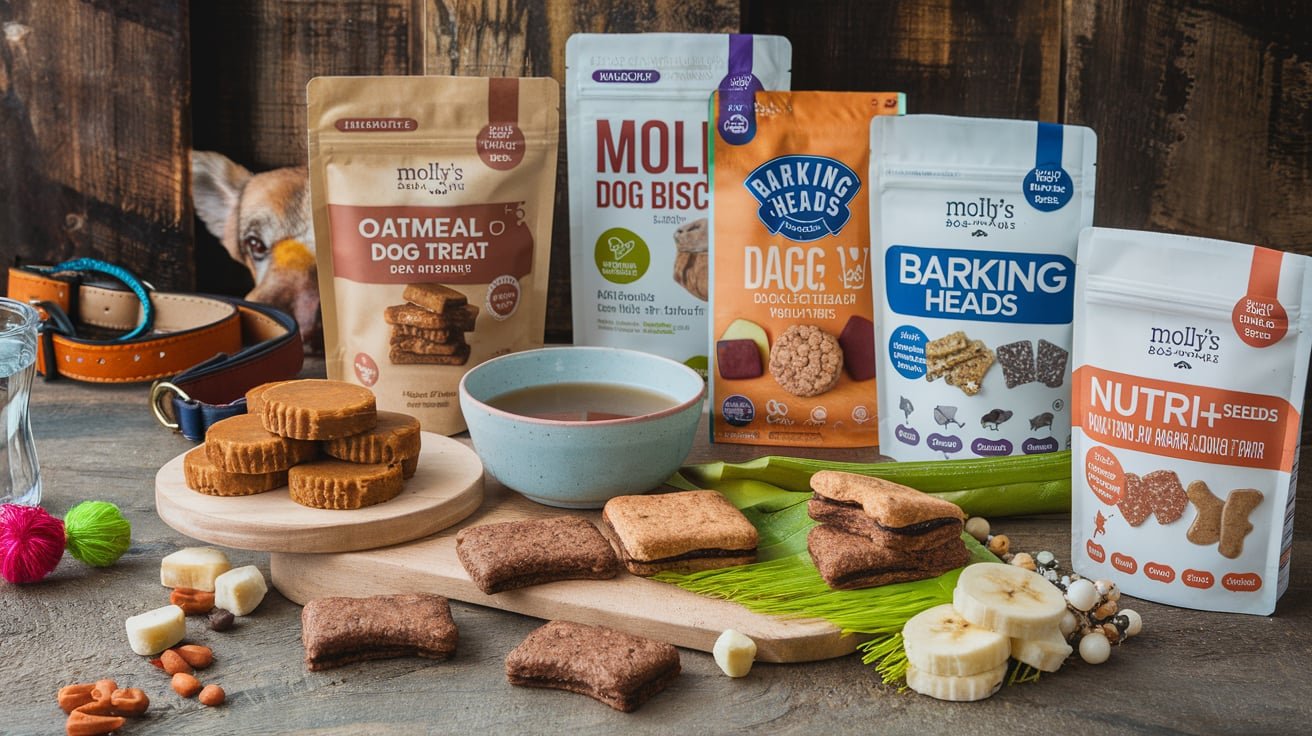Introduction To Can Dogs Eat Sauerkraut?
As a pet owner, you may have wondered if certain human foods are safe for your dog to consume. One such food that raises curiosity is sauerkraut. This tangy, fermented cabbage is well-loved by many humans for its unique taste and potential health benefits, but can dogs eat sauerkraut safely?In this article, we’ll explore whether sauerkraut is safe for dogs, the potential health benefits, any risks involved, and how to properly serve it to your dog. We’ll also share tips for introducing sauerkraut into your dog’s diet in a safe and beneficial way.
What is Sauerkraut?
Sauerkraut is finely cut cabbage that has been fermented by various lactic acid bacteria. This fermentation process gives sauerkraut its distinctive sour flavor and preserves the cabbage for a long time. While many people enjoy it as a side dish, sauerkraut is also known for its potential health benefits, particularly because it contains probiotics, which promote gut health.
Can Dogs Eat Sauerkraut?
The simple answer is yes, dogs can eat sauerkraut, but with a few important considerations. Sauerkraut, when prepared properly and served in moderation, can actually be a healthy addition to your dog’s diet. However, not all sauerkraut is created equal. Some commercially available sauerkraut can be loaded with salt, preservatives, and other additives, which are not suitable for dogs.
The Benefits of Sauerkraut for Dogs
There are several reasons why sauerkraut can be beneficial for dogs:
- Probiotics for Digestive Health: Sauerkraut is rich in probiotics, the good bacteria that support your dog’s digestive system. These probiotics can help balance your dog’s gut flora, improve digestion, and even strengthen their immune system.
- High in Fiber: The cabbage in sauerkraut is high in fiber, which can help improve bowel movements and support digestive health. A fiber-rich diet can be especially beneficial for dogs that suffer from constipation or irregular bowel movements.
- Rich in Vitamins: Sauerkraut is packed with essential vitamins like vitamin C and K. Vitamin C can boost your dog’s immune system, while vitamin K plays a key role in bone health and blood clotting.
- Detoxifying Effects: The fermentation process that produces sauerkraut also results in the creation of certain compounds that have detoxifying properties. These compounds can help rid your dog’s body of harmful toxins.
A Personal Story: Toby’s Sauerkraut Experience
Take Toby, for example—a 5-year-old Golden Retriever with a sensitive stomach. His owner, Sarah, had been struggling to find foods that didn’t upset his digestion. After reading about the potential benefits of sauerkraut for dogs, she decided to give it a try. She introduced a small amount into his meals, and after a few days, she noticed a difference. Toby’s digestion improved, and he seemed to have more energy. This is just one example of how the probiotics in sauerkraut can help improve a dog’s gut health.
Risks of Feeding Sauerkraut to Dogs
While sauerkraut has its benefits, it’s important to be mindful of the potential risks as well.
- High Salt Content: One of the biggest concerns with sauerkraut is its high sodium content, especially in store-bought varieties. Too much salt is harmful to dogs and can lead to dehydration, high blood pressure, and even sodium poisoning in extreme cases. Always opt for low-sodium or homemade sauerkraut.
- Additives and Preservatives: Some commercially available sauerkraut may contain additives like vinegar, spices, and preservatives, which are not suitable for dogs. These additives can cause stomach upset and other health issues.
- Portion Control: While sauerkraut is healthy in small amounts, overfeeding it to your dog can lead to digestive issues such as diarrhea or bloating. As with any new food, it’s best to introduce sauerkraut gradually and monitor your dog’s reaction.
Step-by-Step Guide: How to Feed Sauerkraut to Your Dog
If you want to give sauerkraut a try, here’s a step-by-step guide to safely incorporate it into your dog’s diet:
- Start with Plain Sauerkraut: Ensure that the sauerkraut you’re giving your dog is plain, free from any added ingredients like garlic, onions, or spices. These ingredients are toxic to dogs.
- Begin with a Small Amount: Start by offering a small portion of sauerkraut—about one to two tablespoons for small dogs, and up to four tablespoons for larger dogs. Mixing it into their regular food can help them adjust to the new taste.
- Monitor Your Dog’s Reaction: Over the next 24 hours, keep an eye on your dog’s behavior and digestion. If they tolerate the sauerkraut well, you can gradually increase the serving size over time.
- Feed Sauerkraut in Moderation: While sauerkraut can be a healthy addition to your dog’s diet, it shouldn’t be fed in large quantities. Stick to small, regular servings, and avoid overfeeding to prevent digestive discomfort.
- Make Your Own Sauerkraut: If you’re concerned about the salt or additives in store-bought sauerkraut, consider making your own at home. Homemade sauerkraut is simple to prepare and gives you full control over the ingredients.
Sauerkraut Recipe for Dogs
Making sauerkraut at home is a great way to ensure it’s safe for your dog. Here’s a simple recipe to get you started:
Ingredients:
- 1 medium head of cabbage
- 1 tablespoon of sea salt (optional, but use in very low quantities)
Instructions:
- Shred the cabbage finely.
- In a large bowl, massage the cabbage with sea salt until it starts to release liquid.
- Pack the cabbage tightly into a clean glass jar, ensuring it’s submerged in its own liquid.
- Cover the jar loosely and let it ferment at room temperature for 1-2 weeks.
- Once the cabbage has fermented, store it in the refrigerator and serve small portions to your dog.
By making your own sauerkraut, you can avoid the added sodium and preservatives that are often found in store-bought versions.
Conclusion: Should You Feed Your Dog Sauerkraut?
So, can dogs eat sauerkraut? Yes, when prepared properly and given in moderation, sauerkraut can offer a variety of health benefits for dogs. The probiotics and vitamins in sauerkraut can support digestive health, boost immunity, and even improve your dog’s coat.
However, it’s important to ensure that you’re feeding plain, unsalted sauerkraut and keeping portions small to avoid any potential risks. If you’re ever unsure, consult your vet before introducing new foods into your dog’s diet.



